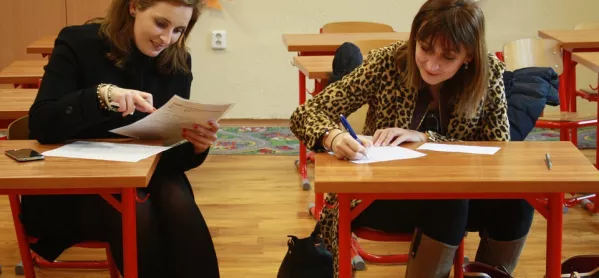Parents in the North need to become more like their pushy counterparts in the South if their children are to perform well at school and win places at the best universities, according to the children’s commissioner.
Anne Longfield said that, while parents in London and the South East have been mocked as “tiger mothers” for the way they push their children and want teachers to do the same, northern parents could learn from them.
“As northern parents, we need to be aware of these inconsistencies and variations in secondary schools and push hard for our schools to show how they are improving and helping our children to achieve,” she told The Times.
“One of the real drivers of improvements of schools in London has been the demand for good school results from parents and children. There is much we northern parents can learn about this parent power.”
Secondaries in the North lagging behind
Ms Longfield’s office has just published a report showing that northern secondaries are lagging behind their Southern counterparts.
At the end of primary school, there is little difference in attainment between those either side of the North-South divide. But a gap opens by the time pupils turn 16, according to the report released by the children’s commissioner to launch her Growing Up North project.
Ms Longfield said it was “time to leave the North-South divide behind”. She called on those leading the northern regeneration to seize the “unique opportunity” to improve children’s prospects.
In 2015, 34 per cent of disadvantaged pupils (defined as those in receipt of the pupil premium) attending northern schools achieved at least five A* to C grades at GCSE, including maths and English, compared with 48 per cent of disadvantaged students in London, the report found.
Of the 20 local authorities with the lowest percentage of pupils achieving five A*s to Cs in 2015, including maths and English, 12 were in the North - which encompasses the North East, North West and Yorkshire and Humber regions - according to the research.
Meanwhile, of the 20 best-performing local authorities, only one was in the North. Performance among 11-year-olds was mixed across the regions.
In 2016, 56 per cent of children in the North East reached the expected standard in reading, writing and maths at key stage 2 - higher than those in any part of the country apart from outer London (56 per cent) and inner London (57 per cent).
Reshaping prospects
Last week, Ofsted chief inspector Sir Michael Wilshaw highlighted the growing gap between secondary schools in the South and East of England, and those in the North. More than a quarter of northern and Midlands-based secondaries are still inadequate, Sir Michael said.
Growing Up North, a year-long project led by the children’s commissioner, seeks to find out why some northern children are falling behind.
“The regeneration under way provides a unique opportunity to reshape prospects for children in the North,” Ms Longfield said. “I want every child, wherever they are born, to get the same opportunities and support to prosper.
“To do this, we need to understand why children do better in some parts of the country than others and what it is about the place they grow up in that supports them to succeed.
“Our project will put children at the heart of discussions about northern regeneration. It’s time to leave the North-South divide behind.”
Want to keep up with the latest education news and opinion? Follow TES on Twitter and like TES on Facebook




